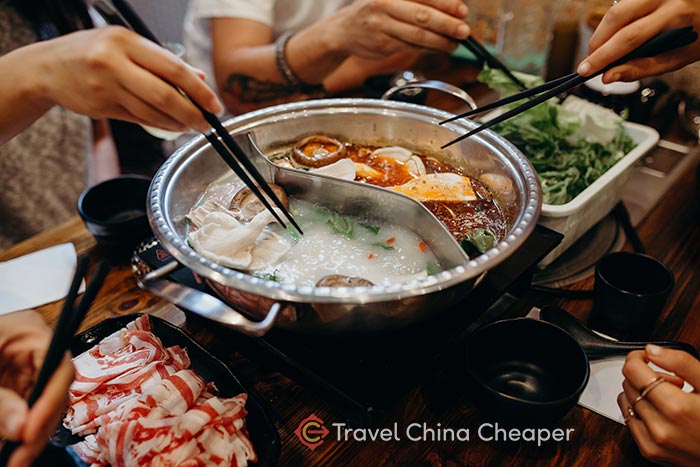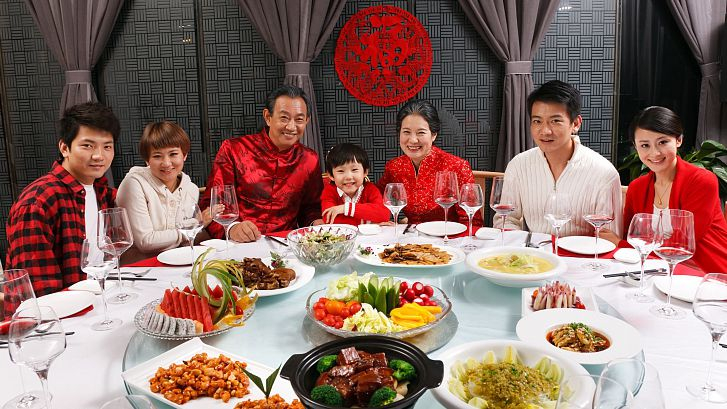20 Handy Pieces Of Advice To Explore China Food Scene
20 Handy Pieces Of Advice To Explore China Food Scene
Blog Article
Top 10 Tips For Exploring Local Cuisines Of China
1. Learn about the Eight Culinary TraditionsTip: Get familiar with the eight major Chinese dishes: Sichuan, Cantonese, Shandong, Jiangsu, Fujian, Hunan, Anhui, and Zhejiang. Each has distinct flavors, techniques, and dishes.It aids you in planning your meals by looking at your tastes.Con: It can be overwhelming to remember the nuances of each cuisine.
2. Get a taste of local dishesTry the most famous dishes in each region like Peking Ducks in Beijing or Shanghai or Hot Pots at Chengdu.Pros This experience will be authentic and rich in cultural aspects.Cons: It may restrict your choices for exploring other cuisines when you are only in one region.
3. Taste the regional FlavorsTip: Sichuan dishes are spicy and dulling. Cantonese foods are light and fresh. Jiangsu food is sweet and delicate. Choose dishes based on your spice tolerance.Pro can help you avoid eating dishes that might not suit your tastes.Con: Certain flavor profiles may be acquired tastes and may require some experimentation.
4. Explore Street FoodTake note of the unique street food options in each city. For instance, you may find Jianbing (savory burgers in Xi'an) or Roujiamo(Chinese crepes)in Beijing. Be adventurous and try local snacks.Pros: Street food is cheap, quick and convenient. They also give a glimpse of local life.Cons: Hygiene can be an issue. Choose vendors who have a high turnover.
5. Learn Basic Dining EtiquetteTips: Be aware of Chinese dining habits, like sharing food with your family in a traditional family style and not sticking the chopsticks straight into rice.Pro: Remains true to local traditions and enhances the experience of dining.Cons: Adapting to a new etiquette can take time.
6. Ask your locals for recommendations.Tip: Locals often know the best restaurants and dishes within their region. Don't be afraid to ask for help.Cons: You won't be able to find the hidden gems.Con: Language barriers could cause communication to be difficult.
7. Be Open to Unfamiliar InputsIf you're looking for an innovative recipe, consider making experiments with strange ingredients. Discover new dishes with curiosity.Pros: It will help you gain a better understanding of Chinese food culture.Con: Certain dishes might not be appropriate for your palate or diet restrictions.
8. Accommodate Dietary RestrictionsTip: Use Mandarin to communicate food allergies and preferences.Pro: Provides you with secure dining experiences, that is tailored to your personal needs.Cons: Some cuisines are limited in their choices. very few options to meet certain dietary preferences.
9. Mix Drinks and Foods from a RegionallyTip: Try local beverages such as Shaoxing wine from Zhejiang, tea in Fujian, or baijiu in the northern part of China.Pro: It complements the food and gives depth to the dining experience.Con Cons: Baijiu and other strong flavors may not be appropriate for all.
10. Avoid OverorderingA tip A tip Chinese dishes are served family-style. So order conservatively. If you need more, just add it.Pro: It prevents food waste, and lets you sample several meals.Cons: You might be tempted by the temptation to purchase too much because of the wide variety.
Pros and Cons of Exploring Regional Cuisines in ChinaDifferent Flavors - Taste an array of delicious tastes, ingredients, and techniques.Cultural awareness: Know regional identity and traditions.Accessibility - Many of the local dishes are reasonably priced.Memorable experiences: Try iconic foods that originate from their ancestral home. This will help create unforgettable memories.Cons of Exploring Regional Cuisines in ChinaHygiene issues: Street food and small restaurants might not be up to the standards of hygiene set by international standards.Language Barriers: Menus and explanations are usually only in Mandarin. It makes it difficult to order.Unfamiliar ingredient: Some flavors or textures can be difficult for some people.In some regions, strict vegetarians, people who suffer from food allergies, as well as vegans can have difficulties.You can conquer any obstacle with these strategies and being adventurous. Read the top a deep dive into China food culture for website info including Chinese cuisine you need to try, the best food destinations in China, China culinary hotspots, explore China riCh food history, the best food destinations in China, discover China culinary delights, regional Chinese cuisine highlights, culinary tours of China best cities, famous foods in China cities, culinary tours of China best cities and more.
Top 10 Tips For Visiting Temples At Different Seasons In China
1. Go during off-seasons, usually from November to January. This is when fewer tourists visit, and the weather is more pleasant.
Pros: It's quieter and offers a more tranquil experience.Con: The weather could be colder than usual, making outdoor temple tours less enjoyable.2. Prepare for Extreme Weather ConditionsTemperatures vary a lot during different seasons. The temperatures can vary greatly between seasons. Prepare for the weather.
Pro: If you're prepared for any weather condition so you'll feel at ease on your visit.Con The issue is that packing for extreme weather can be inconvenient, especially if you're traveling in a small amount.3. Visits to Vibrant Flora in the spring and SummerTIP: Visit temples in the early days of spring and in the summer. This is when you will see gorgeous gardens, beautiful blooms, and beautiful landscapes all around.
Visit the temple grounds to admire the beautiful scenery.Con: Summers in America are often extremely hot and crowded. This is especially true during National holidays.4. Take into consideration special events and festivalsTip: Plan a visit to the temple during festivals of traditional significance, such as the Chinese New Year in January/February or the Mid-Autumn Festival in September. These festivals offer a variety of rituals and ceremonies as well as an opportunity to be immersed in the rich culture of the temple.
Pro Temples are full of tradition and lively activities. They offer a unique experience.Con: During festivals temples may become very busy and accommodation costs may rise.5. Beware of Peak Holiday SeasonsTIP Refrain from visiting during high tourist season (e.g., Chinese New Year, Golden Week in October) when temples can be packed with local and international visitors.
Pro: A more peaceful experience, without the noise of crowds.Con: You may miss out on seeing some of the festival's special events during peak times.6. Look for Temple Closures in Winter.Tip: Some temples may have limited hours or closed during the winter months, in particular in remote areas or northern regions. Always verify the time ahead.
Pro: Prevents wasted trips and allows you to organize your other activities in advance.Con: Some temples may have reduced hours or completely closed during repairs, which can lead to disappointment.7. Early Morning Visits in the summerGet there early to avoid the heat of the midday sun. Many temples open their doors at dawn. The ambience is more peaceful and less crowded.
Cons Pros: The crowds aren't as loud and the weather is cooler.Cons: A early wake-up time is required, which may not be appropriate for all people.8. Prepare for the possibility of rain during the Summer.Tipp A word of caution: Rainy days are commonplace in the summer, especially in the southern part of China. If visiting during this season bring an umbrella or rain gear to stay comfortable.
Pro: You are able to admire the beauty of the temple in the rain.Con: Rain can disrupt outdoor activities and make temple grounds slippery.9. In the autumn, go to temples in mountainous regions.Tips: Autumn is the ideal time to visit temples in the mountainous regions (e.g., Mount Wutai or Mount Emei) as the temperature is mild, and the fall foliage creates amazing landscapes.
Pro A cool climate allows to enjoy more comfort while going for a hike or just exploring the outdoors and also allow for breathtaking views.Con The mountain temples that are well-known can still draw crowds, particularly during holidays or weekends.10. You can use the lunar calendar for planning certain eventsTIP: Many temples use the lunar calendar in China Some ceremonies or events are linked to certain dates. Research the calendar to attend important events such as the Lantern Festival, Buddha's Birthday and other temple events.
Pros: Greater understanding of spiritual practices and the unique cultural experiences.Cons: Researching and planning your trip around the lunar schedule may require extra time and you could discover that the lunar calendar does not coincide with your travel dates.The Benefits of Visiting Chinese Temples during the seasonFewer Crowds Off-season visits offer an unwinding and contemplative experience.Cultural Festivals: These events can provide a deeper understanding of the local culture and religion.The beauty of the landscape. Spring or Autumn can bring you stunning landscapes. The vibrant gardens surrounding temples are another great option.Cooler Weather: Autumn and winter offer milder temperatures for temple exploration.Pros and Cons of the Seasonal Chinese Temples VisitsUnpredictable Weather - Winter may be cold and summer could be hot. Both weather conditions could impact your well-being.Some temples are closed during severe weather or in the off-season.In the time of festivals when the temple is packed. This makes it hard to take in the serene environment of a temple.Limited Activities: If you are traveling outside of the season, some seasonal events might not be held.You can make your trip to the temples of China more memorable and enjoyable by choosing the best season and making plans ahead. If you're seeking tranquil quiet or a celebration of culture Understanding the changing seasons can help you make the most of your trip. Take a look at the top rated explore diverse Chinese dishes for blog recommendations including explore local Chinese cuisine, explore China food scene, savor China regional food specialties, culinary experiences across China, taste the best dishes across China, Chinese cuisine you need to try, must-try foods in China, explore the riChness of Chinese food, savor China regional food specialties, culinary wonders of China and more.